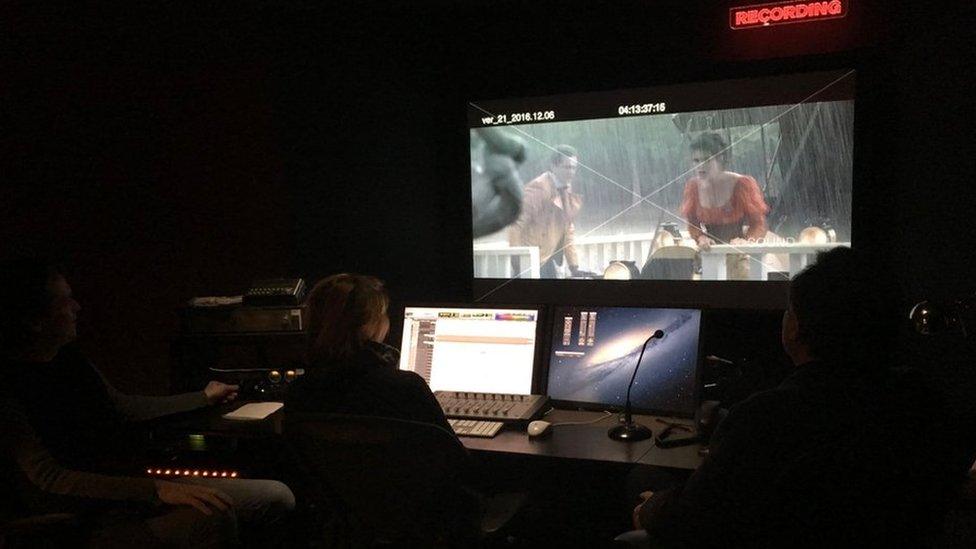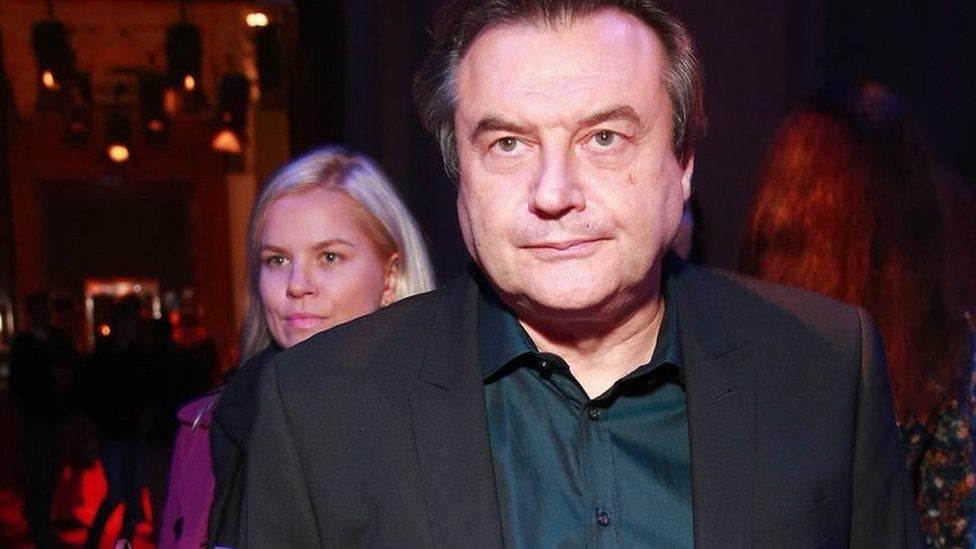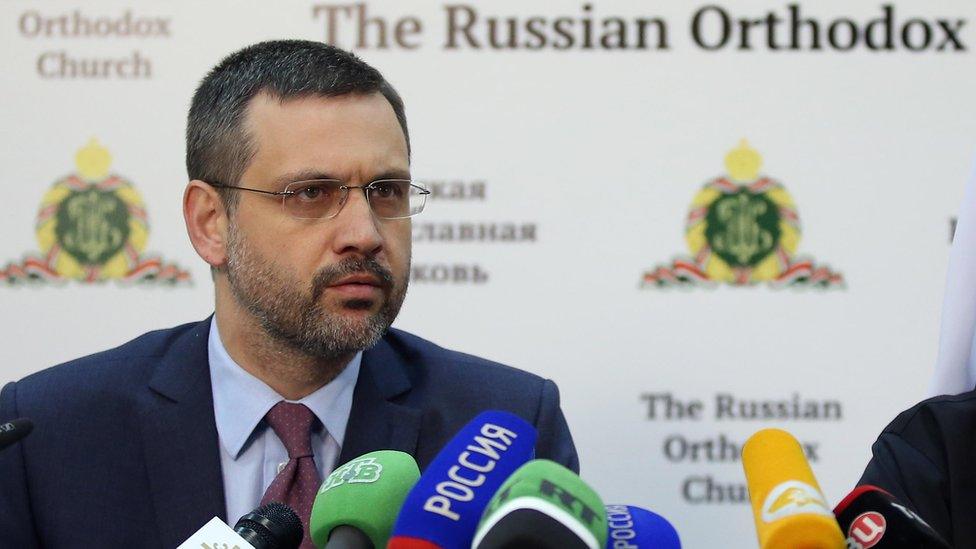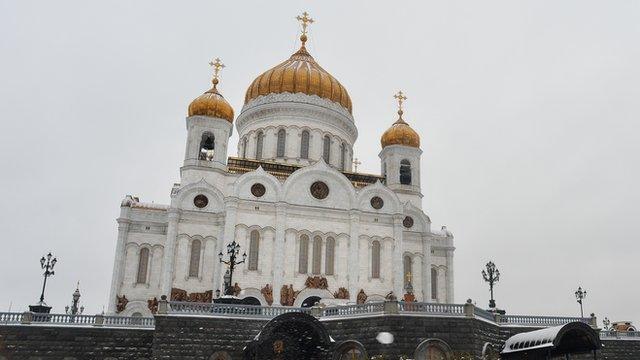Calls for blasphemy ban on Russian film Matilda
- Published
Natalia Poklonskaya leads a campaign to stop the release of Matilda
In a darkened film studio in northern Moscow, an actress runs frantically on the spot to whip up her emotions. Eyes wide and panting, she shouts one, passionate line into the microphone.
She is voicing the female lead in a new film about Russia's last tsar, by the well-known Russian director, Alexei Uchitel. He monitors her efforts from a recording gallery next door, getting the actress to repeat the line over and again until he is satisfied.
Matilda isn't due to hit cinema screens until autumn but some Orthodox believers have already declared the very idea of the film blasphemous and want it banned.
One radical group even sent hundreds of letters to cinemas, warning they would "burn" if they dared screen it. The Kremlin spokesman called that "unacceptable"; Alexei Uchitel has asked police to investigate.
The scandal around Matilda is just the latest instance of Orthodox believers' pressure on the arts, a growing trend which senior cultural figures warn is returning Russia to the days of state ideology and restrictions.
'You can't touch saints'
The film is based on the love story of Russia's last tsar and ballerina Matilda Kshesinskaya, before Nicholas married and took to the throne. They met after her graduation performance from the Imperial Ballet School. The dancer herself wrote that the mutual attraction was instant.
But Nicholas II was canonized in 2000 by the Orthodox Church, so campaigners say the expose of his personal life is an insult.

The film's director denies that Matilda is in any way insulting
"You can't touch saints. You can't show them having sex because that offends the feelings of believers," Natalia Poklonskaya argues, a fervent young MP leading the campaign to block the release of Matilda.
Her office is decorated with portraits and icons of the last tsar. There's now a pile of complaint letters too, which the MP says grows every day.
"This is not censorship, this is about the violation of people's rights," says Ms Poklonskaya, defending her application to the prosecutor's office to ban the film. "Artistic freedom is not limitless, it cannot impede on the rights of others."
But late last year, Orthodox activists got a performance of the musical Jesus Christ Superstar shut down in Omsk. Before that, a Wagner opera in Novosibirsk was banned as offensive and the director sacked.
Other activists have chosen more direct action.
A group calling itself "Christian State, Holy Russia" told the BBC its letter against Matilda was not a threat to attack cinemas, though it certainly reads that way. But a spokesman claimed that "society" was angry at a film he said "spat in the face" of believers.
He also claimed - though we can't verify it - that security officials have checked their organisation, and declined to take action.
In September, men in military-type uniform blocked the entrance to an exhibition by an American photographer they decreed pornographic. Inside, a protester on a moral crusade sprayed urine over the walls, shouting that culture should be "Russian".
'Stop this!'
That and similar attacks prompted one of Moscow's best-known theatre directors to warn that Russia was living in "very difficult, dangerous and frightening times".
Konstantin Raikin argued that such groups hide behind talk of patriotism, motherland and morals. In a passionate speech in Moscow, he suggested that their lenient treatment by the authorities suggested someone was itching to turn back the clock to the days of official control of the arts, and censorship.

Matilda is directed by Alexei Uchitel
Alexei Uchitel points out that his own film received state funding, which involved what he called "expert checks" of the script. He denies that Matilda is in any way insulting.
"Yes, Nicholas II and his family are saints, but it doesn't mean we can't describe their lives before they were tragically killed," the director argues during a break in recording.
He says he has chosen this topic because he is deeply interested in Nicholas II as a historical figure and argues that the life of the last of the Romanovs must be open to exploration by the arts.
"If you put a label on someone and say you can't touch him, that's just absurd," Mr Uchitel believes.
He points out that neither Natalia Poklonskaya nor any of his other critics have actually seen the film they claim to be insulted by. Only a short trailer is publicly available.
"I think this is a precedent which needs to be stopped," the director says of the attempt to ban his work.
"If not, the prosecutors will soon only be dealing with complaints from MPs who say people have been insulted in films, books and art. Of course I think that's wrong. Categorically!"
Matilda is currently set for release in October, in this the centenary year of the tsars' removal from power. But the fight over the film's fate isn't over. Instead, it is developing into a test case of where Russia sets the limits on artistic freedom.
- Published2 November 2016

- Published10 April 2013

- Published25 March 2024
